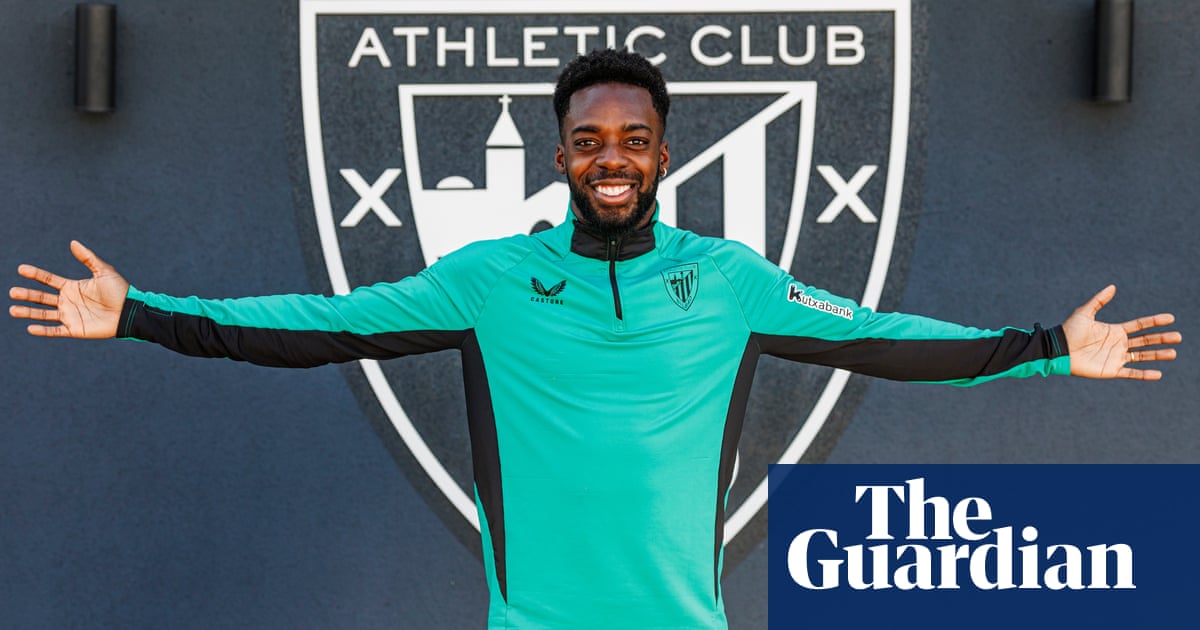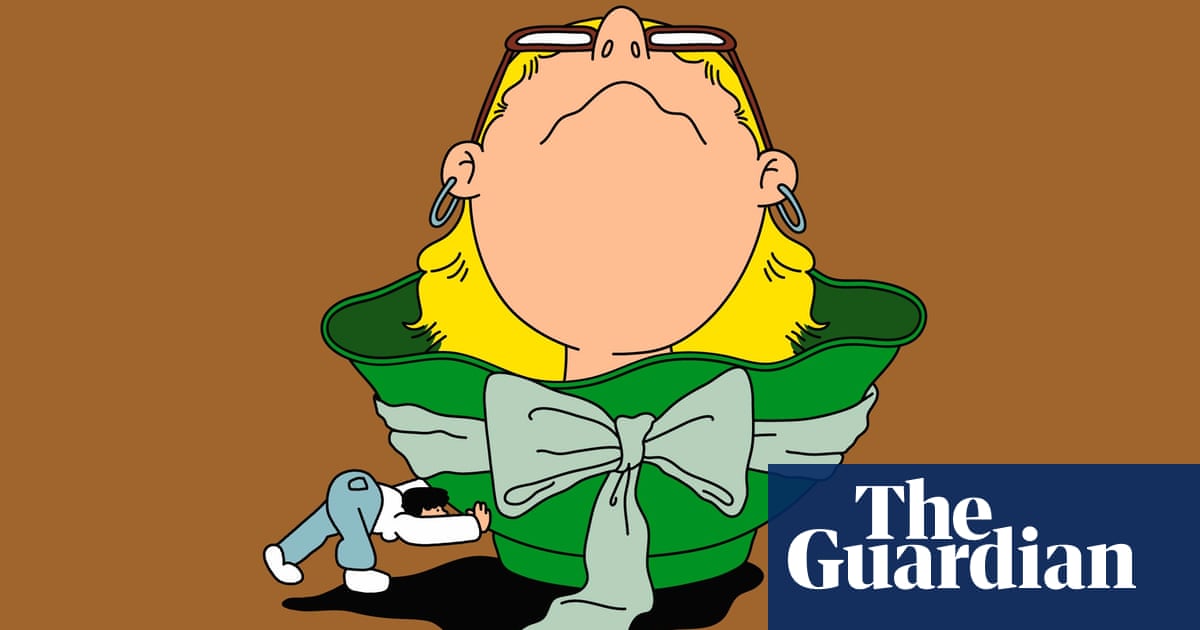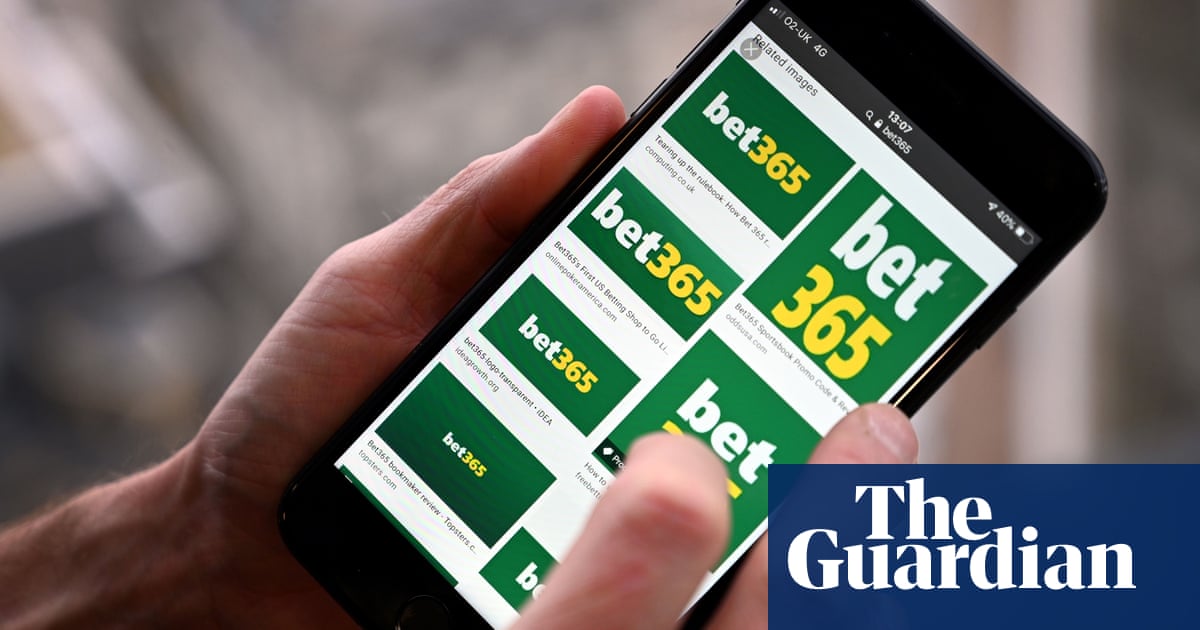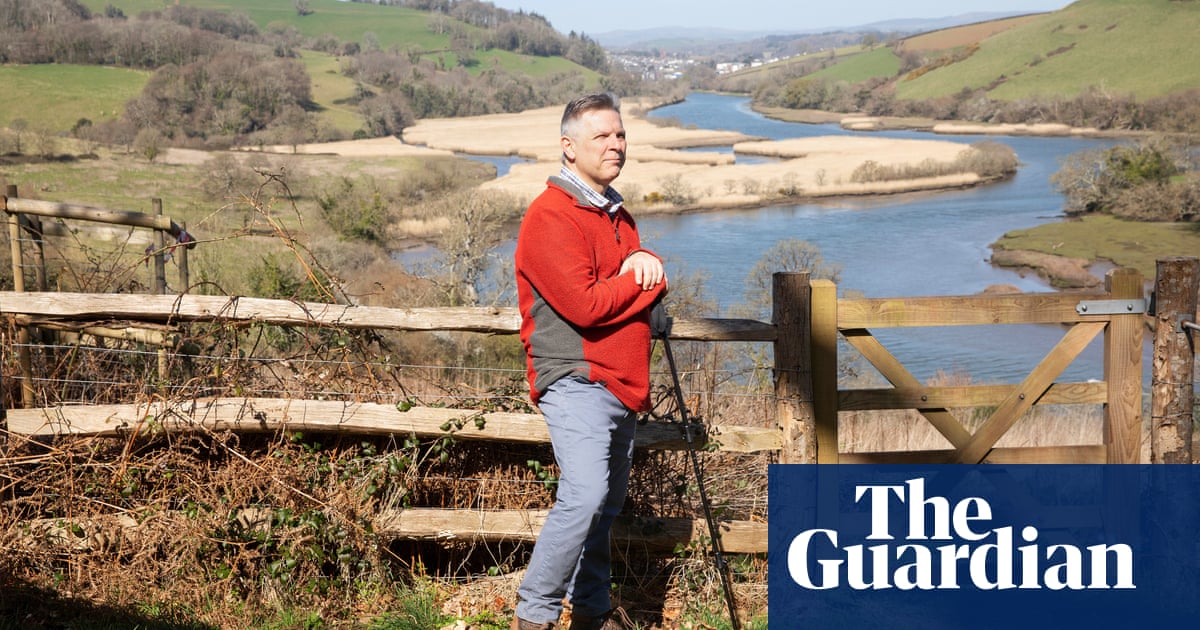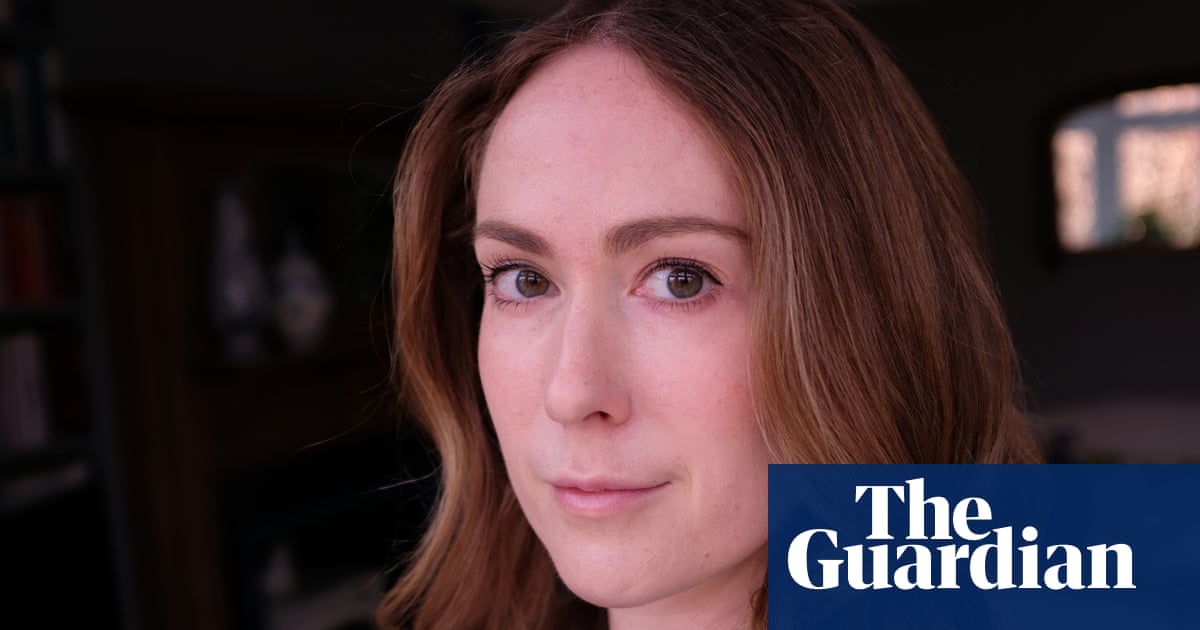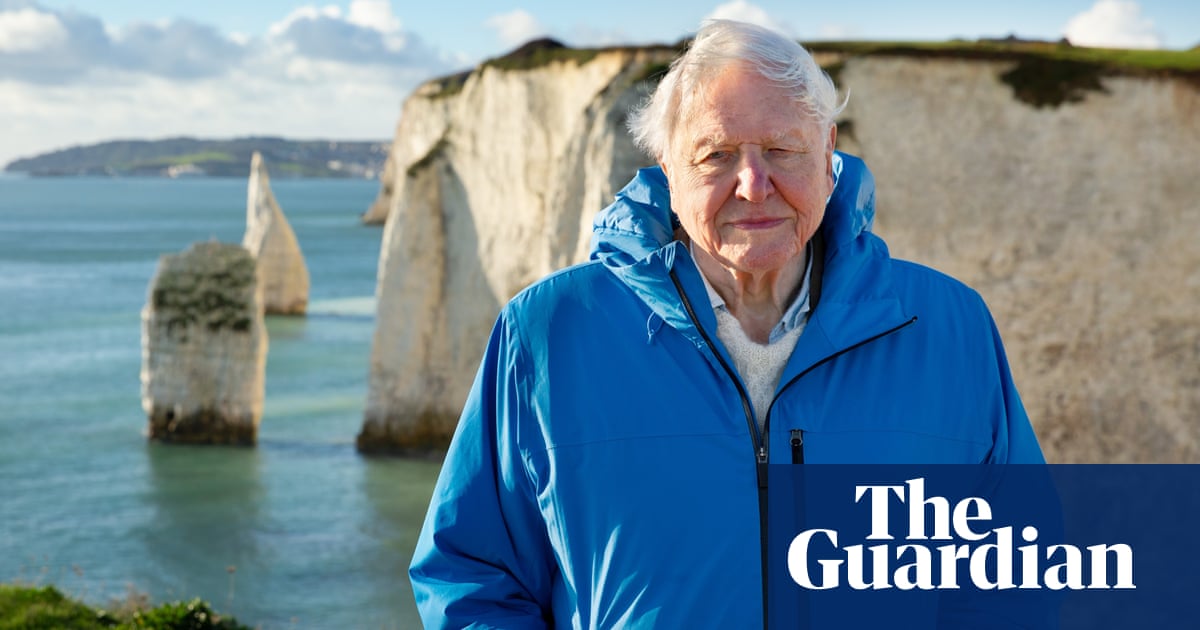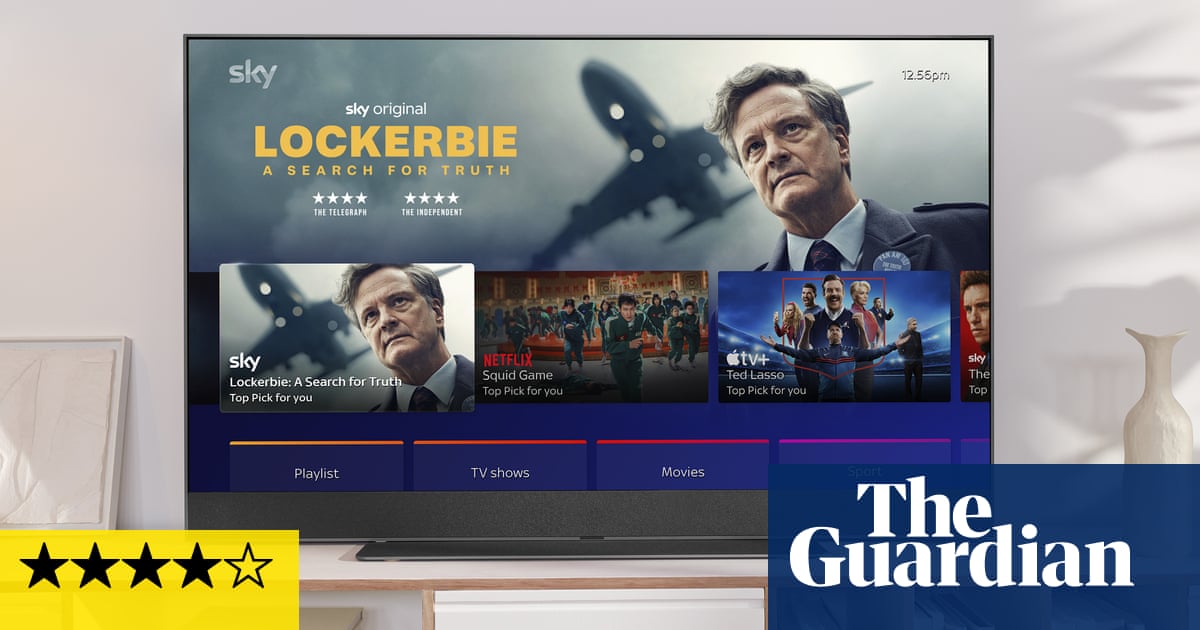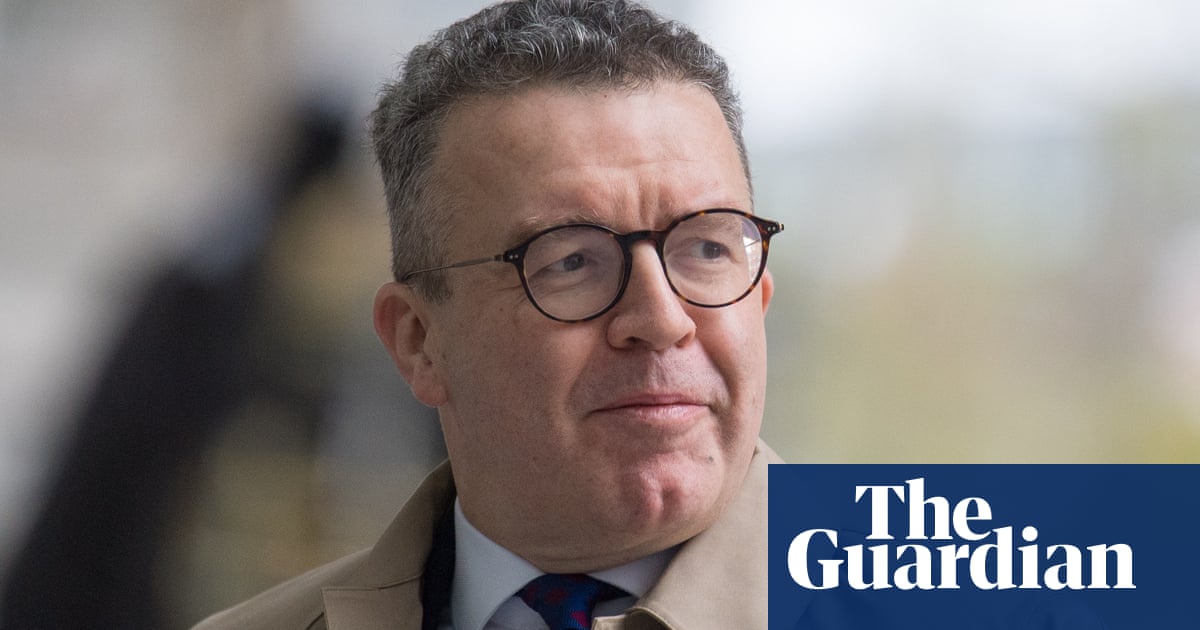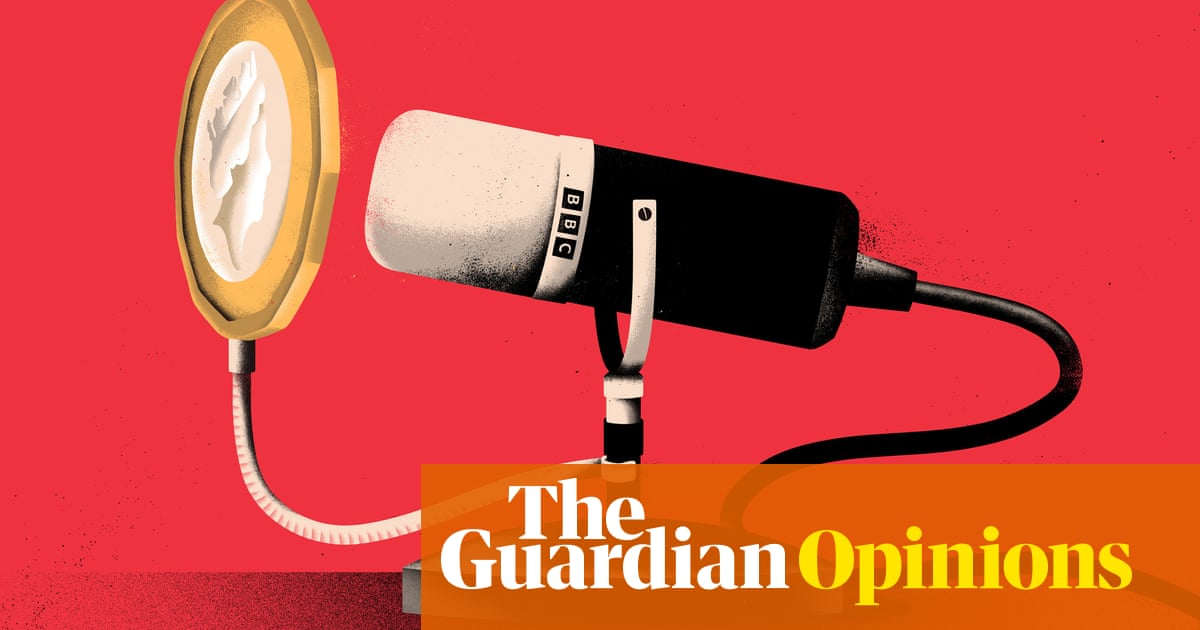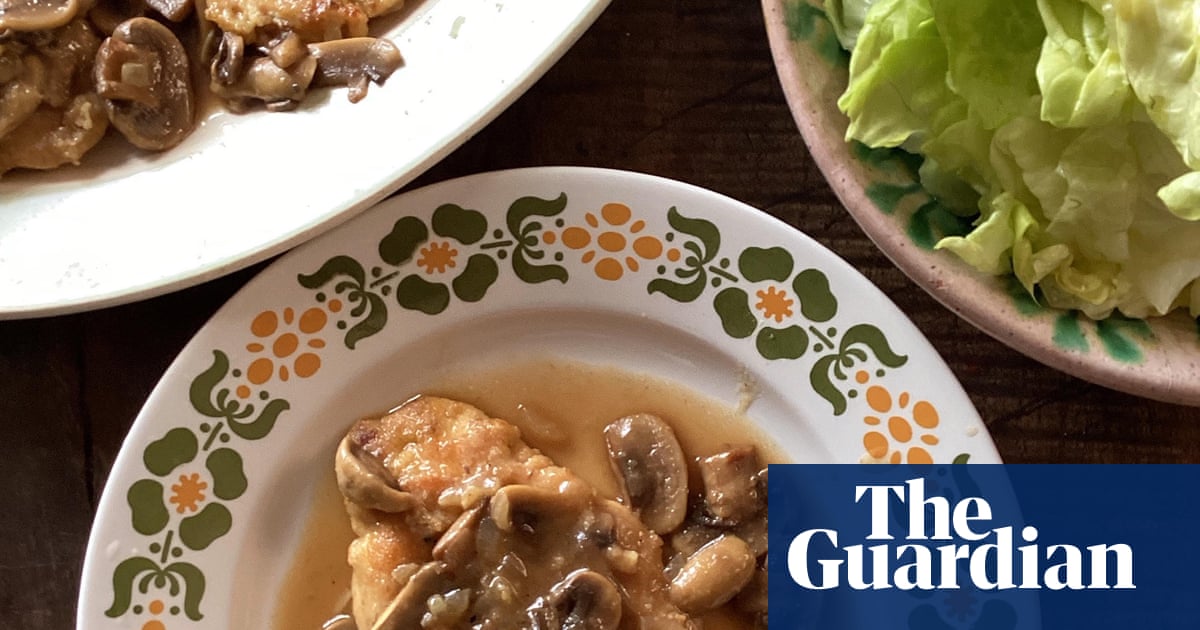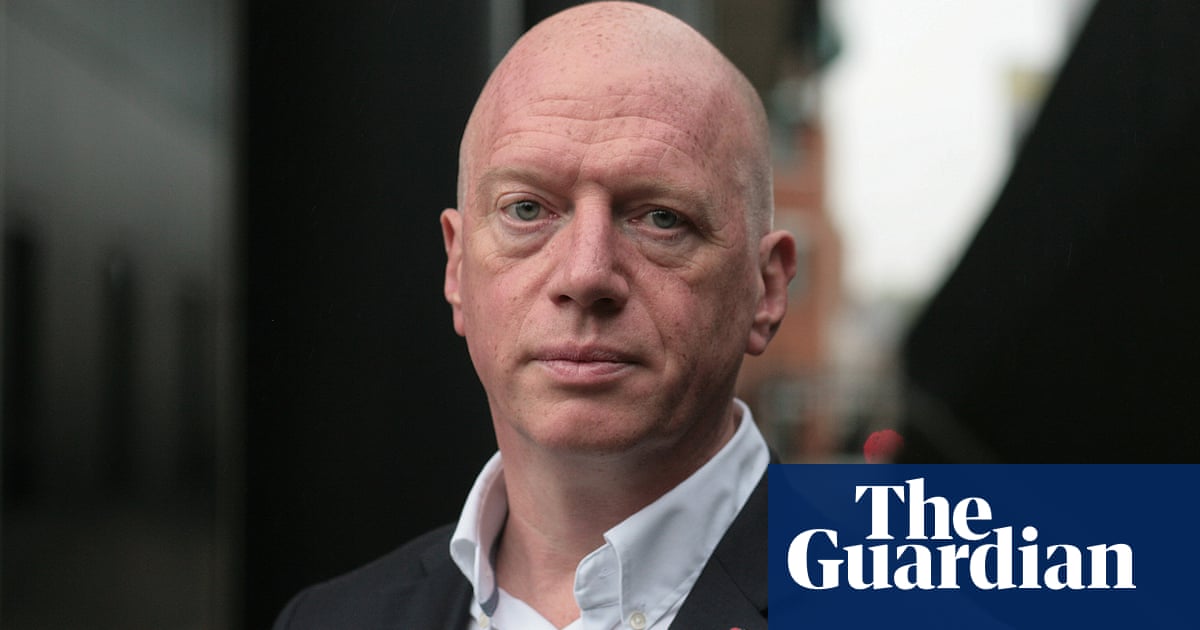The first thing I notice about Esther Ghey is a blossom tree trailing down her left arm to her hand. There is one pink flower on the tattoo. Pink was her daughter Brianna’s favourite colour. If Brianna had got her way, the whole world would have been pink. And just after she was murdered by two teenage schoolchildren in February 2023, Ghey says, the world did briefly turn pink. The local blossom trees filled with the blossomiest blossom she had ever seen. “It really felt she was with us and that she was sending us a sign she was OK,” she says.
Now Ghey has written a book, Under a Pink Sky. It’s a memoir of her and Brianna’s lives, and a manifesto of sorts; a shocking exploration of how deadly smartphones and online spaces can be. It’s also one of the most unflinching, inspirational autobiographies I’ve read, a remarkable cry of hope from the depths of despair.
Brianna, a transgender girl of 16, was groomed by another teenage girl, who was desperate to kill. It could have been anybody; she just wanted the experience of cold-blooded murder. But the girl became obsessed with Brianna – partly because she was trans. The girl and her male friend lured Brianna out with the promise of taking cocaine, which Brianna had never tried, then stabbed her multiple times. In Under a Pink Sky, Ghey doesn’t mention the killers by name, so I won’t. But she does name the mother of the girl, for a good reason. They have become friends.
Ghey emerged from the horror of Brianna’s murder as a hero. She appeared on television and talked movingly about the need for forgiveness. This young mother from Warrington, still only in her late 30s and going through the worst of the worst, came across as extraordinarily together. But the truth, for much of her life, couldn’t have been more different. As a young woman, Ghey was a drug-addled wreck who struggled so much as a mum that her own mother called social services because she was worried for her daughter and her two young grandchildren.
We meet in a hotel in Warrington, close to where she lives. Her warmth shines through immediately. As does the trauma. It’s the first lengthy interview she’s given about the book, and she warns me she’s going to find it tough. She apologises for her tears in advance.
In a way, Under a Pink Sky is the story of two troubled kids – only one of whom survived to tell their story. Ghey says there are so many parallels between her early life and Brianna’s. As a teenager, Esther Ghey was caught in a web of self-loathing. She had body dysmorphia, was desperate to be thinner, and told herself that nobody would ever love her the way she was. At times she was bullied; sometimes she picked on other children. Then she found drugs. She left school at 16 with no qualifications. “I had no self-worth because of that. I had no respect for myself, no respect for my body, no respect for my life, and that is such a sad, tragic, horrific place to be.”
Brianna would go on to struggle with many of the same things: self-belief, school attendance, bullying. And while she was never hooked on drugs, Brianna was addicted to her smartphone and social media.

By the age of 20, Ghey was a single parent to two young children. She managed to get a house, hoped to make it a “safe haven” for her and her children, and failed miserably. She remembers buying a load of teal paint and telling herself she was going to make her home perfect. “It turned out to be one of the worst times of my life. I beat myself up about it a lot because I had become addicted to drugs and my house never got finished. That teal paint just turned into sludge.”
How serious was her drug problem? “It was a really serious addiction. I hit rock bottom.” What was her drug of choice? “Amphetamines. Yeah.” She pauses. “And everything I could get my hands on, really. My life was absolute turmoil. A mess. People might look at me and think, ‘She’s got her head screwed on’, but it’s not always been like that.”
Then her mother, a teacher and foster carer at the time, called social services. “My mum helped as much as possible, but she had five foster children and felt completely helpless. Fortunately for me, social services came in and we had all the basic things we needed.” And she really is talking about basics – bread, milk, light and heat. “And they decided they weren’t going to take the children. That for me was a massive wake-up call.”
Esther Ghey did turn her life around. And how. In her late 20s, now clean and a devoted mother, she started with a job as a cleaner at a car dealership before going back to college, initially doing an English GCSE. She did an access to health professions course, because at the time she wanted to be a nurse, completed a degree in nutrition at Liverpool Hope University, and eventually became a senior product development technologist for a food company.
Now 38, Ghey’s face is freckled and open, her eyes sea-blue, and she looks exceptionally healthy. She has two names tattooed on her wrists, celebrating the births of her children. On her right hand, it says Alisha in smudgy black ink; on the left, it says Brett. For 14 years of Brianna’s life, she was Brett. Through the book, Ghey makes a clear distinction. She refers to Brett as he, Brianna as she. Does it seem like two different people? “It does, though that’s not necessarily because she went from Brett to Brianna, it’s just the natural stages of life. It was important for me to talk about Brett as well, because to understand where Brianna was at, you need to understand the whole life.”
What was Brett like? Her face lights up and her voice crackles with happiness. “Hyperactive, giddy, funny, always getting up to mischief. A cheeky little thing. Absolutely fearless. He taught himself gymnastics – he did backflips. I think of him bouncing around Asda, completely uncontrollable but also completely full of joy. And so kind. When he was young, he had an asthma appointment and as he was leaving he went to give the doctor a hug. He was so full of love. That kind of love started seeping away once I’d given him the phone. The impact the phone had on his mental health is stark. I believe it took my child away from me.” There’s a tremor in her voice, and Ghey starts crying.
Brett had so many issues, she says – body dysmorphia and dysphoria, asthma, ADHD, appalling eyesight, autism (then undiagnosed). There were times when he couldn’t face school and was a non-attender. At the age of 14, Brett explained that he wanted to transition. Ghey took it in her stride. In the book, she writes: “When the transition happened for Brianna it was perhaps one of the easiest parts of her short life.” Brett wanted the new name to start with a B. They drew up a list – Bella, Bridget, Britney, Blossom, Briony, Bree. Blossom was ruled out because Alisha thought it sounded like a stripper’s name, while both Alisha and Ghey said there was no way they would call her Britney. When Ghey suggested Brianna, Brett liked it. And that was that.
Brianna was given a smartphone when she started high school. It hadn’t been a big thing for her older sister Alisha – just a way of keeping in touch with her mum, checking stuff online and playing a few games. For Brianna, it couldn’t have been more different. She escaped into the online world and soon found herself lost and trapped. Ghey documents the descent with chilling precision in her book. At first, Ghey would take the phone away overnight and check for any worrying activity. But by the time Brianna was a teenager, she refused to let her mother see what she was doing.
Ghey already felt her child had been spending too much time on the phone. As Brianna, she started making YouTube videos – dancing and natural makeup tutorials for fellow schoolkids. Ghey didn’t like the negative comments, and she worried that the videos Brianna was making were being watched by adults with very different agendas.
“I remember in the comments there was a grown woman saying, ‘Do you call that natural makeup?’ and I thought, ‘Why would you comment on a child’s video?’ I said, ‘Brianna, why are you even putting yourself out there to receive these comments?’ Her response was, ‘Have you seen how many likes I’ve got, though?’ It’s that dopamine hit when you get likes.”
Brianna was a mass of contradictions: desperate for attention in the digital world, but terrified of the real world. At times she wouldn’t leave the family home for weeks on end. In one way, she craved anonymity and invisibility, yet she turned up at school in miniskirts, dolled up to the nines.
After one particularly vicious fight over the phone, Ghey discovered that Brianna, then 14, was secretly looking at pornography on X (at that time Twitter) and pro-anorexia and self-harm content online. Her role model was a girl who was denying herself food, in essence teaching other people to copy her and kill themselves in the process. Although Brianna met her killers in the real world – at school – it was the online world that had made her so reckless and vulnerable to exploitation in the first place. The more Brianna looked for harmful content, the more the algorithms served it up to her. And the more Ghey challenged Brianna about it, the more angry and withdrawn she became.

“My relationship with Brianna was so bad because all I wanted to do was help her, but because I wasn’t backing down, we were having lots of arguments.” Brianna became abusive and violent. When Ghey confiscated her phone, she punched holes in her bedroom walls. “I saw how addicted she was to her phone through her behaviour,” Ghey says, “because I’ve been through it myself. Smartphones have been built to be addictive. Social media is built to keep you on there as long as possible. It’s the attention economy.”
On the rare occasions Ghey did get access to Brianna’s phone, she was sickened by what she found. But she didn’t know what to do for the better. “I’ve got a child who’s isolating herself from the real world, and she’s found a community online and is accessing harmful stuff. How are you as a parent supposed to manage that? Am I supposed to isolate her even more and take her away from social media, or do I let her still be subject to the harmful content that she’s looking at? What’s going to harm her less?” What is the answer? “There is no answer. The health professionals didn’t have an answer, the schools didn’t have an answer, nobody knew what to do.”
On one occasion Ghey got up in the middle of the night and saw the light on in Brianna’s room. “I opened her door and she was sat behind the door on her phone I couldn’t get back to sleep and I wrote this frantic email to an amazing supportive teacher. I said, ‘I am worried that I’m going to come home and find both of my children raped and murdered’ because I didn’t know who Brianna was talking to online. She was 15. I was concerned she was going to bring something dangerous to the house.”
Brianna lost so much weight in her last year that she had to be hospitalised. Ghey was devastated. Now she finds it equally devastating to admit that Brianna’s time in hospital was one of their happiest times as mother and daughter in the final two years of her life. Brianna was not allowed access to social media in hospital and, for once, Ghey found herself able to talk to her as they used to do. “She had her own room, and I’d go to see her every day and she had no wifi. It was like I had my child back again. She’d send me text messages, and she was so goofy and funny. She’d say, ‘I love you and want you to come and see me.’ She wasn’t being influenced by anything. She was stripped back – it was pure Brianna.” She wipes her eyes and exhales loudly. “Pppprrrr.”
When she got home, things quickly deteriorated again. Brianna retreated to her bedroom with only her smartphone for company. She asked Ghey to stop telling her that she loved her. It shattered her, but she agreed.
Meanwhile, the girl who went on to murder Brianna was also delving into the darkness of the web. Initially, she became fixated with true crime. But before long that wasn’t enough. She found websites that offered up live abuse. Soon, she vowed to become a killer herself. She and her male accomplice discussed ways of killing people. They drew up a list of potential victims before deciding on Brianna. One time they tried to kill her with an ibuprofen overdose, telling her that it was MDMA. Brianna was violently sick, but survived. The girl voiced her frustration in a text message to the boy: “Like I gave her some today that shld have been enough to kill her but she didn’t die.” The boy suggested she double the dose and put it in a “Maccies milkshake”. Eventually, they decided to kill Brianna with a hunting knife he had bought on a skiing trip to Bulgaria that Christmas. He posted a picture of the knife, with its 5in blade, on a WhatsApp group. Everything about the murder was evidenced on their smartphones.
after newsletter promotion


Brianna agreed to meet the two killers, who were 15 at the time, in Culcheth, near Warrington, on 11 February 2023. They met at a bus stop and walked to an isolated area in nearby Linear Park. Brianna was stabbed 28 times with the hunting knife. In court, the girl and boy each blamed the other for the murder.
During the trial at Manchester crown court, the Crown Prosecution Service put forward evidence suggesting the killing was a hate crime, including WhatsApp messages that used dehumanising language to describe Brianna. At sentencing last February, the judge, Mrs Justice Yip, lifted the reporting restriction that had prevented the media from naming the two defendants and sentenced them to life in prison. The girl was told she would be jailed for a minimum of 22 years, the boy a minimum of 20. The lengthy sentences reflected that the murder was in part motivated by hostility towards Brianna because she was trans.
Outside court, after the guilty verdicts were announced, Ghey said the killers had not shown “an ounce of remorse”, but urged “empathy and compassion” for their parents, saying “they too have lost a child”. I ask Ghey why she chose not to name the killers in Under a Pink Sky. “The girl wanted to be infamous for the crime she committed, and this is about my life and Brianna’s life, and it’s not about them.” Since being jailed, the girl has expressed a further desire to kill people.
After Brianna’s death, there was an outpouring of love for her and Ghey. And then the trolling began. Ghey and Brianna both became pawns in the culture wars. Some people suggested that Ghey had been a bad parent for allowing Brianna to transition. One Facebook comment said, “Your son died because you failed him. You’re a failure.” A tribute page to Brianna set up by the funeral directors was defiled. Was Ghey shocked? “I wouldn’t say I was shocked or surprised at being trolled, but it disgusted me. It really knocked me, especially with Brianna’s tribute page. It was flooded with horrific images.” She stops, and changes her mind. “I say it didn’t shock me, but it did, because I didn’t think anybody would ever stoop that low. Initially, I felt I didn’t want to do anything ever again. I didn’t want to put myself in the public eye, I didn’t want to campaign, I wanted to curl up in a ball at home.” But, she says, she knew she couldn’t. She had a mission. She had to make Brianna’s murder count for something.
Lots of people who have been through what you have would still be curled up in a ball, two years on, I say. She nods. “If they were, it would be completely understandable.” Ghey says that in the past when things were bleak, she was helped by mindfulness – the practice of being fully aware of where you are and what you’re doing in the moment to distract from past trauma and fears for the future. This time she believes it saved her. If she focuses on the present, she says, she can make the most of her life. If she wallows in the past, she’ll be screwed. She now works with Alisha at Peace & Mind, a community interest company she founded to raise funds to teach mindfulness in schools.
People might expect her to drape herself in sackcloth and ashes, she says, but that is not her way. “In our society, when you’ve lost somebody, particularly in a tragic situation, it’s almost like you have to grieve for the rest of your life – you can never be happy, you should never smile and never laugh. It’s so wrong! You still owe it to yourself to be happy, and whoever you’ve lost to be happy. I choose not to think about what happened to Brianna. I choose to think about who she was. The good parts and the bad parts, and that brings me joy.”
What image does she have of Brianna when she closes her eyes? “Ah!” She closes them and smiles. “Honestly? She just had these pyjama bottoms that she would never take off. They were pink fluffy pyjama bottoms and they had stains on them and holes in them, and she had this Barbie T-shirt. As soon as she got in the house, her makeup would come off, those would go on and she would just be walking around the house giving me grief, winding her sister up or making silly noises.” What kind of silly noises? “I don’t know where she got this from, but she would always go, ‘Ana oop ana poop ana scoop.’ I’ve got her ashes in a necklace and on the back, it says ‘Ana oop. Brianna.’” Brianna was dressed in the pink pyjamas for her funeral.
Ghey says that writing the book has been both painful and cathartic. What does she want people to get out of it? First of all, she says, she would like us to get to know the true Brianna – and the true Esther. But she also hopes it raises awareness of how dangerous smartphones and online platforms can be for children and young people. If tech companies wanted to make their products safer, it would be easy, she says. “We need phones that are built for children, where by design they can’t download social media apps, can’t access porn sites or anything harmful. Cars are safe by design, with seatbelts, and we need the same for children with smartphones.”
Earlier this month, Microsoft founder Bill Gates said he thought Australia’s recent legislation to ban social media for children under 16 was a good idea. This is something Ghey agrees with. And if the tech companies and digital platforms don’t do their bit, and if governments fail to regulate, Ghey says, parents can always vote with their feet and refuse to buy smartphones for their children. She supports pressure groups such as Smartphone Free Childhood, and Bereaved Families for Online Safety.

The book is powerful as a polemic, but where it astounds is as an exploration of forgiveness and hope. Ghey not only examines her capacity to forgive, but also her capacity to be forgiven. She writes about a girl she taunted and bullied at school, and says it haunted her down the years. “This lovely, lovely girl I knew in primary school, and I used to be horrid to her and pick on her,” she says today. The hurt she caused the girl still distresses her. “This was something I couldn’t let go. It was always in my mind. She was clearly struggling, but as a child I don’t think you have that empathy to understand what’s going on in other people’s lives.” In her 20s, she contacted the girl on Facebook and they agreed to meet up. “I asked for her forgiveness, and she so graciously accepted it, and that taught me such a lot. The fact that she forgave me meant that I could forgive myself.”
She says that only by forgiving Brianna’s killers has she been able to move on with her own life. “It was important to forgive the girl and boy for what they’ve done because, if I didn’t forgive them, I would hold that hate in my heart and it would eat away at me. They’ve already taken Brianna away from me and I refuse to let them impact the rest of my life.”
Did she feel the need to forgive herself in any way for Brianna’s death? “I think my whole life has been a journey of forgiving myself. Forgiving myself for the way I was with the children when I was young. Forgiving myself for treating myself badly. Soon after Brianna’s death, there were all sorts of thoughts going through my mind: I shouldn’t have shouted at her for this; I wish I hadn’t treated her this way; I wish we’d never argued. But there’s no way of going back and changing that, and feelings like that are so harmful.” However much Ghey says she has eased up on herself, she still gives herself a pretty tough time. “I need to think what can I do to redeem myself, to make things better, and that’s why I’ve got this drive to help other parents.” Ghey’s words are so measured, but her face is raw with emotion, her voice at times reduced to a whisper.
I knew that Ghey had met up with the mother of the girl who killed Brianna. What I didn’t know is the extent of the relationship they have developed. They now see each other almost every week. Ghey tells me they have so much in common – two mothers grieving for their daughters in different ways. “It isn’t Emma who committed the crime. As a parent, I went through such a difficult time trying to monitor Brianna and to keep on top of what she was accessing online. Brianna was harming herself, and Emma’s daughter was harming herself and went on to harm someone else as well. There’s no blame there at all for Emma. It’s easy to tell ourselves stories in our head about how people are, and it was important for me to meet her and see how she actually was. And she’s just a normal woman who was doing her best.”
Is it easier to talk to Emma about what happened to Brianna than to other people? “We don’t talk about what happened really. I really look forward to seeing her. We’re quite similar and we’ve got a similar dry sense of humour.”
What does she think Brianna would make of their friendship? “I don’t think she’d be bothered. She’d be like, ‘You do you, Mum!’”
Tuesday 11 February was the second anniversary of Brianna’s death. She would have been 18 now. Does Ghey wonder how she would be doing if she hadn’t been robbed of her life? “I can only speak through my experience, and I came out of the terrible place I was in. I would have been hopeful that Brianna would have made it through, just the way I did.”
As for Ghey, she says she is adjusting to the new normal. The reduced family unit – Ghey, her husband, Wes, whom she’s been with for 10 years, and Alisha – are as close as close can be. They see and hear Brianna all around them in pink skies and pink blossom, little jokes, funny sounds, tattoos, everything.
Just before Ghey leaves, she shows me the book cover: a blossom tree in full bloom and the shadow of a mother and her two daughters walking in the sun. It’s beautiful and heartbreaking. As she flicks through the images on her phone, I ask her about the finely etched tattoos on her fingers. They are Buddhist symbols, she says, and she had them inked just before the trial. Which tattoo means most to her? She points to the names Alisha and Brett on her wrists, the cherry blossom with the single pink flower, and finally a gorgeous pink lotus. “You know the lotus flower comes out of the murk and blooms?” She says it’s an important symbol for her. “No matter what shit you go through, there is always hope.”

.png) 2 months ago
24
2 months ago
24

